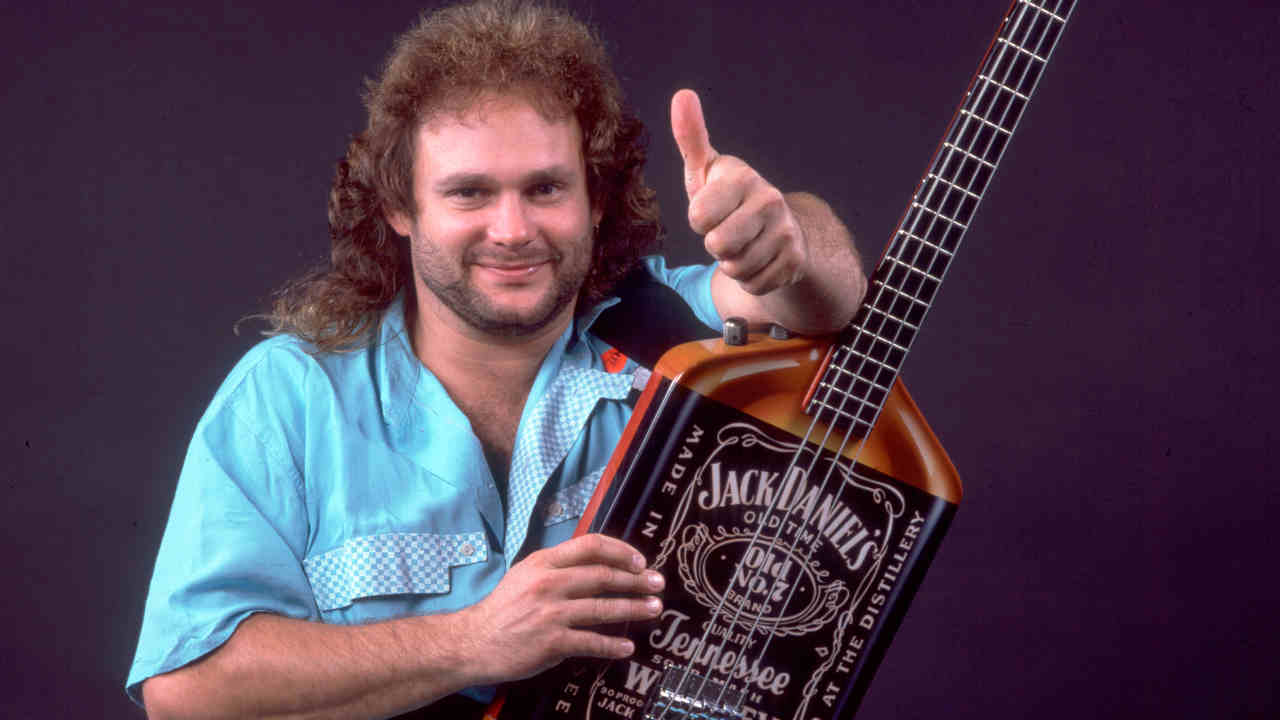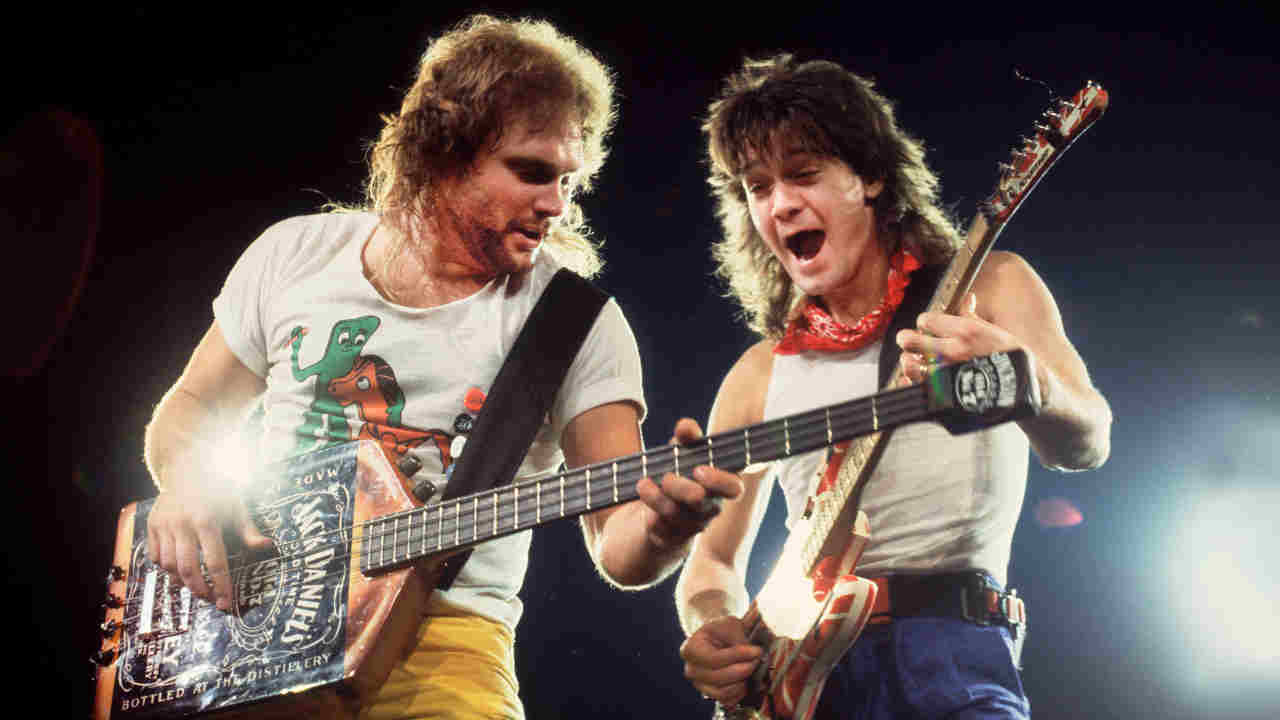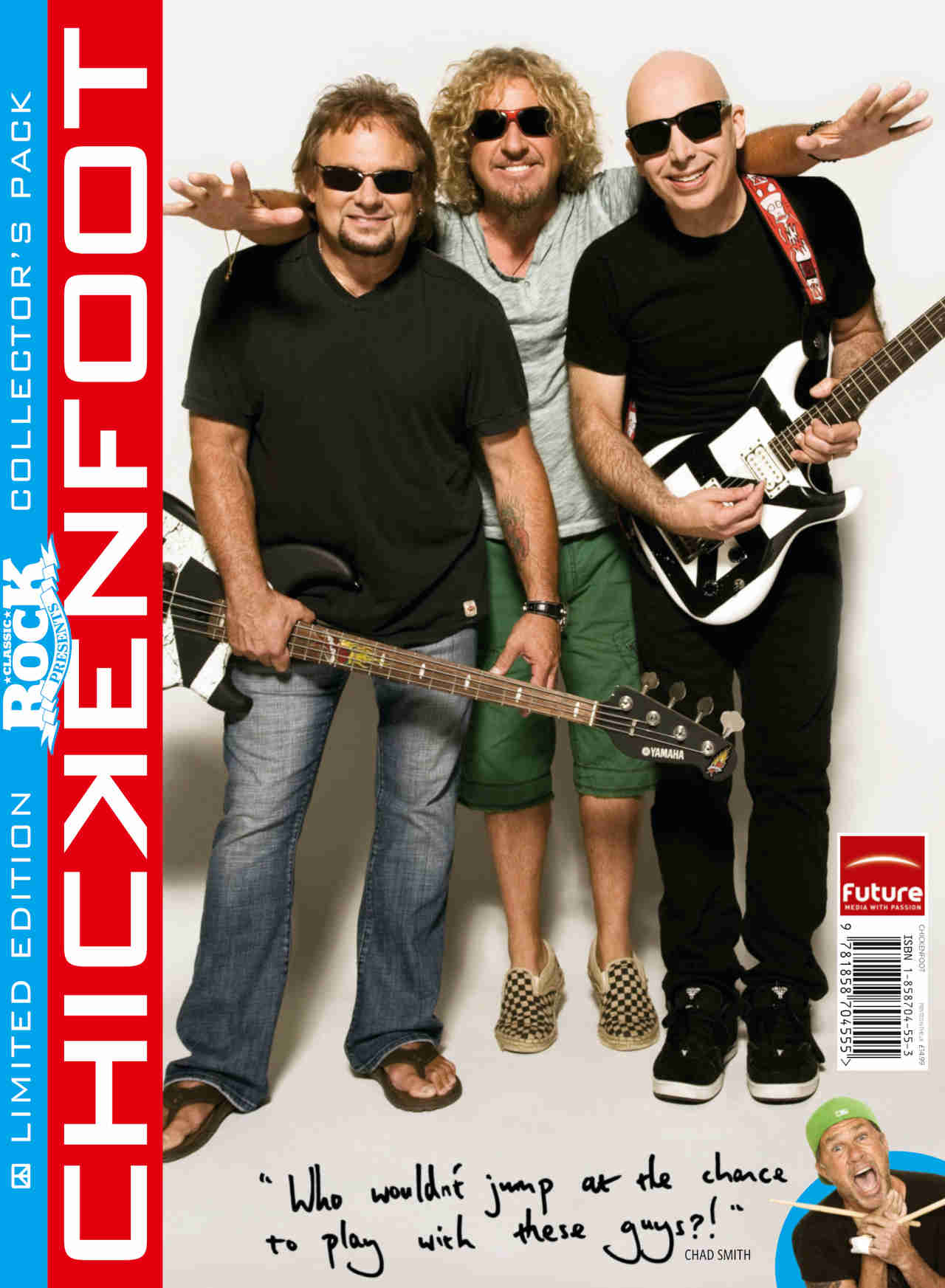
As bassist and backing vocalist with Van Halen, Michael Anthony was a quarter of one of the greatest rock’n’roll bands the world has ever seen. In 2011, as Chickenfoot – the supergroup featuring ex-VH colleague Sammy Hagar and guitarist god Joe Satriani – released their confusingly titled second album, III, Anthony sat down with Classic Rock to talk about the sounds and musicians that shaped him.
My father was a musician for a long time. He played the trumpet and when I was in elementary school he stuck a trumpet in my mouth and said: ‘Here you go, you are going to play one of these.’ I had three brothers and he did the exact same thing to all of them. So I was thrown into music at what you might consider an early age. There was a lot of it around the house.
I also have a sister who was quite a lot older than me. This was at the tail end of the hippie movement in the 1960s and she used to hang out with some of the more popular bands like Arthur Lee and Love and Blue Cheer. They would sometimes congregate close to where we lived, and she got to spend time with them. And of course, she used to bring home a few of their records. When I opened the sleeve and saw photographs of Blue Cheer on stage with stacks of Marshall amps behind them and Dickie Peterson playing his bass around his knees I knew that’s what I wanted to do, right there. There was nothing in my life that could compete.
At school it seemed that all of my friends were into playing the guitar or drums, or maybe they thought they were cool enough to be up front as a lead singer. I guess despite being in the Rolling Stones, Bill Wyman never quite managed to glamourise the bass enough. Because I didn’t know any better I took the two top strings off a Fender Mustang guitar and began to use it as a makeshift bass. For the first six or seven months, because I wasn’t getting any help from anybody, I didn’t even know how to tune the damned thing. What I’d do was get the guitar player to hit an E chord and tune the bass to that; then I’d strum or finger along in what I thought, or hoped, was an E chord. Finally, somebody came along and smartened me up about the rest of the chords. And then I started to play in the proper way.

Growing up where our family was based in Arcadia, California, there were a lot of local bands. Some of them played cover songs. One band I used to follow played songs by Steppenwolf, which was cool. Occasionally their bass players would teach me a few basic things if I asked them to, but I never had formal tuition or learned theory. My style was kinda picked up by listening to and watching what other bass players did.

A guy named Harvey Brooks, who played with Buddy Miles, was one of the first bass players that I really and truly admired. I had an album called A Long Time Comin’ that he did with a band called The Electric Flag. It had a song called Groovin’ Is Easy that I absolutely loved. Those walking bass lines that Harvey Brooks used to play were just fantastic. For quite a while, the blues was what I really loved to listen to.
And then afterwards John Paul Jones of Led Zeppelin came along and just blew me away. I can put on The Lemon Song from Led Zeppelin II and it still moves me. And of course, I also loved what Jack Bruce did in Cream and there was no mistaking the significance of John Entwistle’s role in The Who. Those guys really used to slam it out.
As part of a family with three younger brothers I developed a very strong voice that was later used as a backing instrument in Van Halen. I loved those screams that Ian Gillan used to do on Deep Purple’s In Rock album, and I was a fan of the Californian organist Lee Michaels whose drummer Frosty also had quite a pair of lungs, so I tried them myself. I was pretty good, I guess. I never wanted to be a lead singer but for some reason I was always thrown into that position. Every band I was in, nobody else wanted to sing and I’d end up doing it.
So I ended up joining Van Halen, and they already had a lead singer – and of course Eddie and Alex both sang back-ups. I thought: ‘Great, now I don’t have to sing anymore’, but it didn’t work out like that. I was still at high school where I majored in psychology, but I knew that playing music was what I wanted to do with my life. Staying at school for another 10 years? Forget it.
I threw myself into being a musician. Sometimes after staying up late while playing gigs in the clubs in Hollywood I’d end up sleeping in my car in the parking lot. Besides psychology I did two years of music study – that’s how I met the Van Halen brothers. I was leaving a jazz improv class just as Alex was going to one. It was through a mutual friend of Eddie’s and mine that I found out they were going to sack their bass player. He suggested me, and I got the gig, but quitting college was quite a relief.
Over the years the band went from strength to strength and as we all know Ed started to receive a heck of a lot of attention for his guitar playing. That was only fair; when he was singled out in that way I can tell you right now, I certainly never felt any jealousy. I swear that’s the truth. Like I already said, I went into things knowing that with very few exceptions such as a band like Cream, the bass player tends to be the bottom man of almost any totem pole. I’m not fooling myself; the bass is not a glamorous instrument. So I wasn’t gonna try to go out there and waste time trying to change all of that, but if I felt like running around and going mad on stage as I played, then that’s what I was gonna damned well do. And it’s something I continue to do to the present day. My role is to lock into the drums and focus on the root-notes; feel the music’s power. It’s my style and every time I pick up a bass I love it.
If you asked me to rate myself as a bass player on a scale of one to 10 then that would be tricky. There are so many different kinds of players. Some of them use their instrument like a lead guitar. I enjoy listening to a few of those guys but that’s not me at all. It’s why I love John Paul Jones’s work on the early Zeppelin albums; he played some tasty bass lines but he wasn’t trying to overshadow Jimmy Page or the rest of the guys. Yet what he did for that band was so important melodically and sonically. If you really pushed me I’d have to be honest and say that I see myself as a solid eight-out-of-10 bass player, I guess, but I’m happy with that.
Originally published in Classic Rock Presents Chickenfoot III, September 2011







